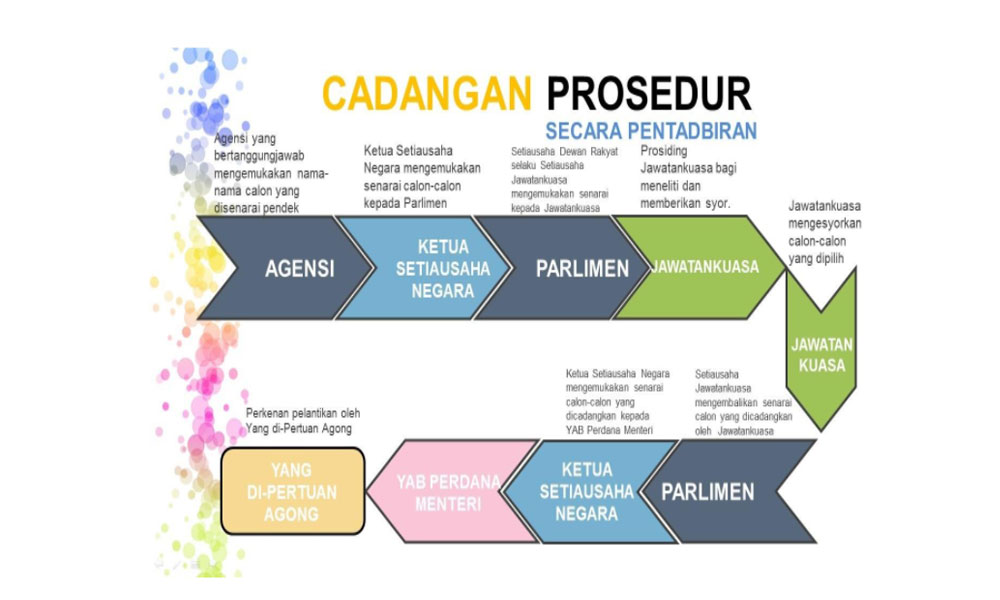MP SPEAKS | The chairperson of the Parliament Select Committee on the Agencies under the Prime Minister’s Department (PSC) had instructed the Dewan Rakyat secretary to fix a date for holding an inquiry into the allegations relating to the share transactions by MACC Chief Commissioner Azam Baki.
The secretary made an error in judgment by writing to the minister in the Prime Minister’s Department (parliament and law) for consent to allow the PSC to hold the inquiry.
The PSC reports to Parliament and not to the ministers. Parliament acts as a check and balance to the executive arm of government. Parliament does not need the executive’s permission to act. Parliament is not the handmaid nor the rubber stamp of the executive.
Since the letter has been sent, I call on Prime Minister Ismail Sabri Yaakob not to obstruct the PSC’s inquiry. The prime minister as a member of the Parliament Select Committee for Major Public Appointments (the predecessor of the present PSC) which I chaired, is well aware of the importance and functions of the PSC.
PSC function
The PSC as a bipartisan committee carries out a scrutiny function to ensure that fit and proper persons are appointed to major public office. Although by a different coalition, the prime minister ought not to discard the following cabinet decisions:
- The cabinet decision of Aug 13, 2018, that the appointment of the MACC chief commissioner is to be considered by the PSC and the chief commissioner’s performance and competency be evaluated by the PSC and outside stakeholders.
- The decision of July 31, 2019, to approve the standard operating procedure (SOP) for the PSC’s consideration on the appointment of the chief of the commissions of Suhakam, the Election Commission, MACC, the Judicial Appointments Commission and such other major appointments as may be decided by the PM.
- The SOP provides for the relevant agency to submit the list of candidates for the posts to the chief secretary of the government who then submits them to the PSC for their review and recommendations. The PSC’s recommendations are then forwarded to the PM through the chief secretary of the government. A chart of the SOP is set out below:
In addition to the cabinet decisions and SOP, Parliament in enacting the MACC Act 2009 (Act 694) has a duty to ensure that the MACC functions effectively, independently, enjoys the security of tenure and is held accountable for its actions.
MACC must command respect, be credible, transparent and fearless. As such the chief commissioner and the MACC must be subject to review by a free press and by civil society. They must be able to withstand the glare of public scrutiny and be accountable to the public.
It is therefore imperative for the PSC to hold an open and public inquiry not only on the share transactions but also into the explanation given by the chief commissioner to the advisory board, his conduct and responses to the allegations.
It is only by holding such an inquiry will the PSC be able to protect the office of the chief commissioner and MACC’s reputation if the allegations are false.
PSC should decide
On the other hand, the office of the chief commissioner must be held by a person not only with the required qualification, experience and competence but also that person must possess good character, high integrity, high moral reputation, recognised probity and commands public respect for exemplary behaviour to reflect the values for which the MACC stands for.

If the allegations are true the PSC will have to determine whether Azam is fit to continue in office and make the appropriate recommendations to Parliament. The recommendations must consider the need to maintain MACC’s credibility and public trust in the organisation to enable the MACC to be an effective tool to curb corruption.
Whether the share transactions involve conflicts of interest, breach of Section 25 of the Securities Industry (Central Depositories) Act for violation against proxy trading, or violation of the Public Officers (Conduct and Discipline) Regulations against public officers acquiring company shares more than 5 percent of the paid capital or a value of more than RM100,000, are pertinent to the question of Azam being fit to hold office or to exonerate him from allegations of wrongdoing.
Therefore, notwithstanding that the MACC Advisory Board has made a finding, or the Securities Commission has commenced investigation or the Public Services Department will conduct disciplinary investigations, they are not reasons to prevent the PSC from holding the inquiry.
These agencies are entitled to conduct their own investigations and act according to the provisions of their respective functions and jurisdiction. The PSC must be entitled to carry out its own functions and duties.
This is the time for the prime minister to show he has the political will to fight corruption otherwise anti-corruption policies remain mere political rhetoric and empty slogans.
WILLIAM LEONG JEE KEEN is Selayang MP.
The views expressed here are those of the author/contributor and do not necessarily represent the views of Malaysiakini.


